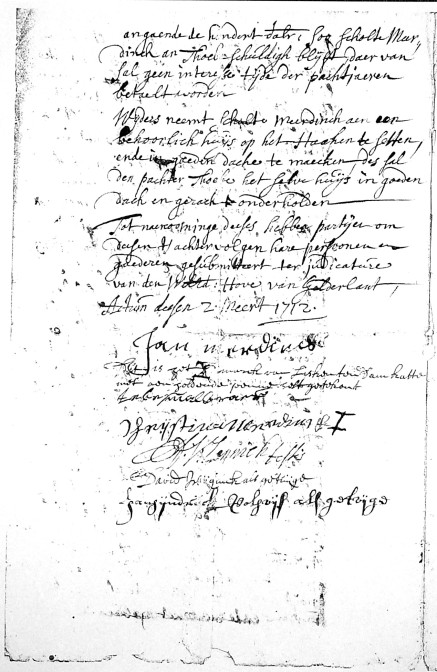Huur is a noun meaning rent. The verb huren means to rent, and verhuren means to let out (huren is from the viewpoint of the renter, verhuren from the viewpoint of the owner). Many people rented houses and/or land.
Historically, most people in the Netherlands were too poor to own their own houses, and rented them instead. The owners were often richer people in the town, noble families, churches, or (especially in earlier periods), monasteries and convents.
Some rental contracts were made before a court or notary, and can be found in those records. Other contracts were be made between the parties privately, with each keeping a copy. These can sometimes be found in personal or family archives, manorial archives, or in court records if there later was a dispute over the terms.
For an example, see two tenancy contracts from the 1700s found in the records of the owner of the farm.



English speakers should be aware that when properties are for sale in the Netherlands, the Dutch put up signs “te koop” (to buy) rather than “vir verkoop” (for sale) which is what one sees in the United Kingdom.